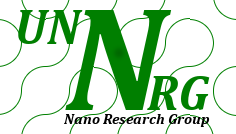Conference Theme:
Nanotechnology: Key to National Development
Introduction
The economic, social and developmental arguments for organizing the first African International School Conference at the University of Nigeria, Nsukka (UNN) are strong, compelling and urgent.
First, it is an incontrovertible fact that Science and Technology have emerged to become critical to economic growth and sustainability in modern economy. The developments in Materials Science have contributed significantly in man’s quest to conquer his environment. More importantly, renewable energy is likely to be man’s long term solution to increasing demand for energy.
Continent-wide
Also, Africa suffers a shortage of Human Capacity with scientific and technological skills. Africa’s development, therefore, is dependent on the establishment of an effective system for developing and retaining scientific and technological knowledge. It is important to increase the energy generation to meet demand of the emerging modern economy. Greater percentages of African poor communities live without access to energy from the national grid. It is anticipated that this African International School will discuss promising R&D of technology that can help the rural poor. This International School is hoped to re-train the Scientists and University Teachers and re-focus them to meet the challenges in African human capital development. The application of renewable energy technologies in Africa is growing rapidly without commensurate increase in appropriate human capital to drive and sustain the growth.
Further, the probable impact of successfully hosting the African International Conference and possible establishment of a Centre for Nanotechnology Application (CNA) at the University of Nigeria, Nsukka will afford Scientists and Students the opportunity to use the facilities for research and development in relevant areas of Africa needs. There is a need for inter-disciplinary research centre to integrate researches in renewable energy, environment and health.
In addition, the African International Conferences and Workshops will provide opportunities for Internationally renowned Professors to identify possible areas of collaboration with African Institutions and assist in training some of their Staff to acquire PhD and Post-Doctoral in critical areas.
Finally, it is equally hoped that the first phases of African International Conferences and Workshops shall last for four years and will be an annual event with hands-on session.
